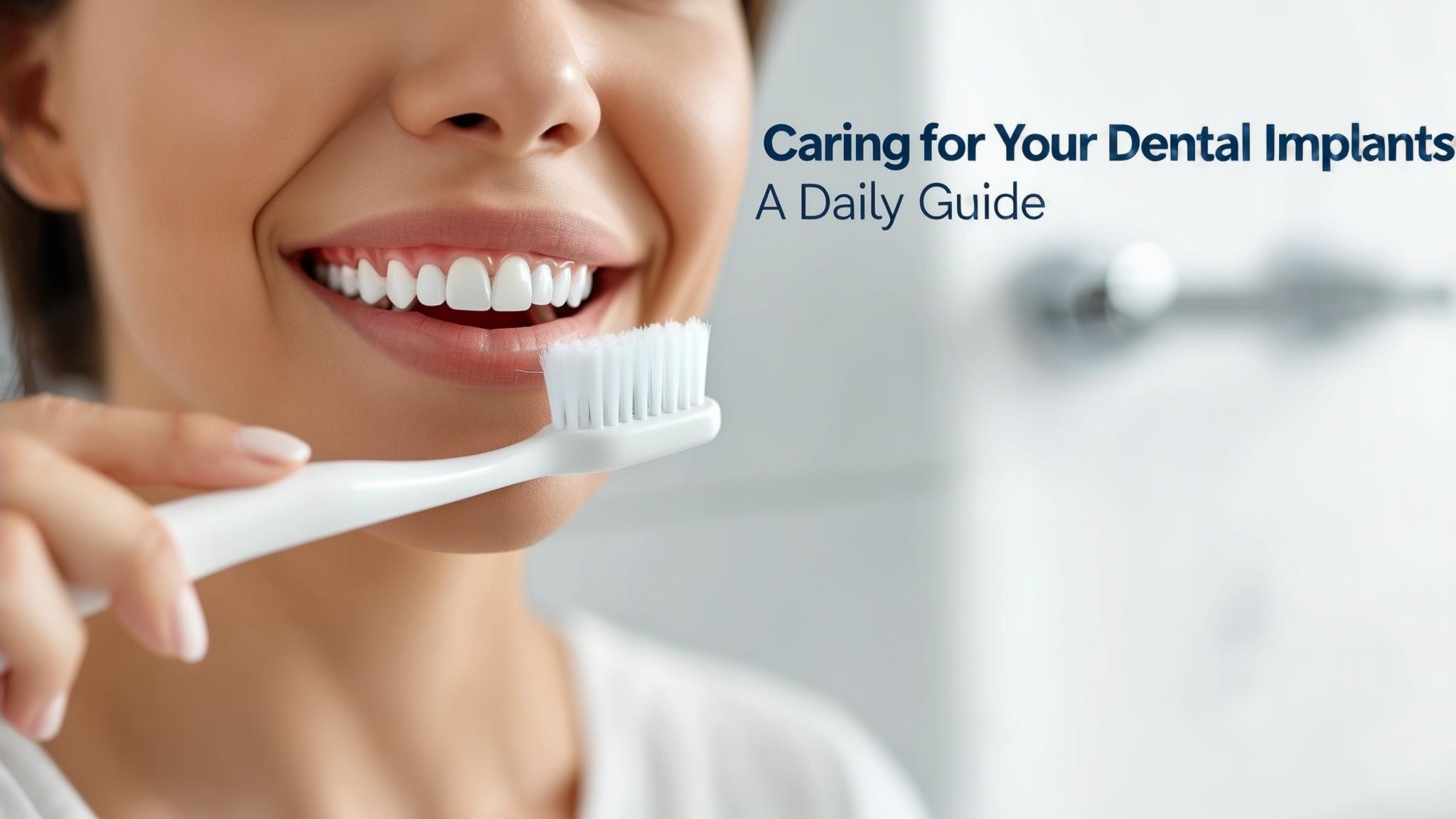Understanding Dental Implants
Dental implants are a modern marvel of restorative dentistry, acting as a lifeline for those missing teeth. They consist of three main components: the implant post, which is surgically placed into the jawbone; the abutment, which connects the post to the crown; and the crown itself, which is the visible part that looks and functions like a natural tooth.
The dental implant procedure involves several stages. Initially, the implant post is inserted into the jawbone. This is followed by a healing period, during which the bone fuses with the implant in a process called osseointegration. Finally, the crown is attached, completing the restoration.
Dental implants offer numerous benefits over other tooth replacement options like bridges or dentures. They provide a permanent solution, help maintain jawbone health, and offer superior comfort and functionality.
Importance of Daily Care for Dental Implants
Just like natural teeth, dental implants require diligent care to prevent complications. One of the most common issues is peri-implantitis, an inflammatory condition that can lead to bone loss around the implant.
Proper daily hygiene can significantly extend the lifespan of your implants. Studies show that implants maintained with good oral hygiene have a success rate of over 90% even after 10 years. This underscores the importance of investing time in daily care.
Daily Hygiene Practices for Dental Implants
Brushing
Brushing is the cornerstone of dental implant care. Use a soft-bristled toothbrush—either manual or electric—and a non-abrasive toothpaste. Brush at least twice daily, ideally after meals and before bed, using gentle circular motions to clean the implant crown and surrounding gums.
Flossing
Flossing is crucial for removing debris and plaque between teeth and around implants. Consider using traditional floss, floss threaders, or interdental brushes. To floss around an implant, gently slide the floss between your teeth and curve it around the side of the implant, moving up and down.
Mouthwash
An antimicrobial mouthwash can help keep your mouth healthy and your implants free of harmful bacteria. Opt for alcohol-free varieties to avoid drying out your mouth. Use mouthwash once or twice a day, preferably after brushing and flossing.
Regular Dental Check-Ups
Routine dental visits are vital for monitoring the health of your dental implants. Aim to see your dentist every 6 months. During these check-ups, your dentist will examine your implants, possibly take x-rays, and clean around the implants to ensure they remain in top condition.
Lifestyle Factors Affecting Dental Implants
Diet
Your diet plays a significant role in the health of your dental implants. Include foods rich in calcium and vitamin D, which support bone health. Avoid sticky, hard, or sugary foods that can damage your implants.
Habits
Smoking and excessive alcohol consumption can adversely affect your implants. Smoking, in particular, restricts blood flow to the gums, impairing healing. Limiting these habits can improve the longevity of your implants.
Oral Health Conditions
Conditions like diabetes or gum disease can impact implant success. Managing these conditions through medical advice and maintaining good overall health is crucial for the longevity of your implants.
Troubleshooting Common Issues
Be vigilant for signs of implant problems, such as pain, swelling, or mobility. Early detection is key. If you notice any of these symptoms, seek professional help promptly to prevent complications.
Conclusion
Caring for your dental implants daily is essential for their longevity and your overall oral health. By adopting the recommended practices, you can keep your smile healthy and bright for years to come. Remember, your efforts today will pay off in the long-term benefits of well-maintained dental implants.
References
- American Dental Association. "Dental Implants." ADA.org.
- National Institute of Dental and Craniofacial Research. "Dental Implants." NIDCR.nih.gov.
- Misch, C. E. (2015). "Dental Implant Prosthetics." Elsevier Health Sciences.

